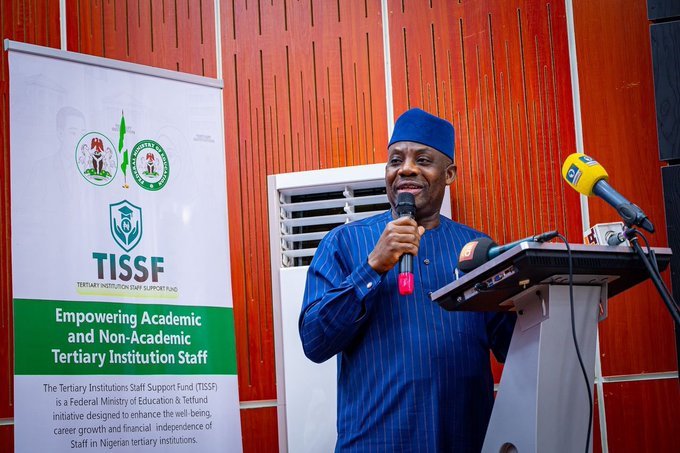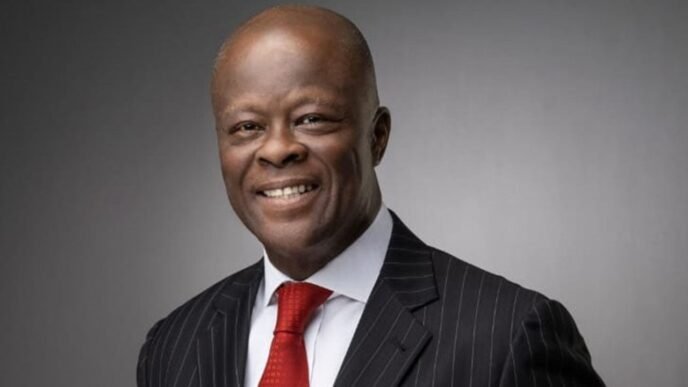BREAKING: Mathematics No Longer Compulsory for Arts Students Seeking Admission — Federal Ministry of Education Announces Major Policy Shift
October 14, 2025
In a landmark decision that is set to reshape Nigeria’s education landscape, the Federal Ministry of Education has officially announced that Mathematics will no longer be a compulsory subject for Arts and Humanities students seeking admission into universities, polytechnics, and colleges of education across the country.
The new directive, which forms part of the Revised National Policy on Admission Requirements for Tertiary Institutions, was approved following extensive consultations with key education stakeholders, including the Joint Admissions and Matriculation Board (JAMB), the National Universities Commission (NUC), and the National Board for Technical Education (NBTE).
The New Admission Guidelines
Under the new policy, students applying for Arts, Humanities, and certain Social Science programmes will no longer be required to have a credit pass in Mathematics at the Senior Secondary Certificate Examination (SSCE) level. However, English Language remains compulsory for all candidates regardless of their field of study.
According to the Ministry of Education, the updated guidelines aim to “remove unnecessary barriers” that have historically prevented thousands of capable students from accessing tertiary education in Nigeria due to weak performance in Mathematics, a subject many consider challenging.
The revised framework outlines specific admission requirements for different tertiary education tiers:
1. Universities
Candidates seeking university admission must possess five credit passes in relevant subjects, including English Language, obtained in not more than two sittings.
Mathematics will only remain mandatory for Science, Technology, Engineering, and some Social Science disciplines, while students applying for Law, Linguistics, Literature, Theatre Arts, Religious Studies, History, Philosophy, and related fields are now exempted from the Mathematics requirement.
2. Polytechnics
For admission into National Diploma (ND) programmes, candidates are now required to have four credit passes in relevant subjects. English Language remains compulsory for all non-science programmes, while Mathematics will be mandatory only for science and technical courses such as Engineering, Computer Science, and Accounting.
3. Colleges of Education
At the Nigeria Certificate in Education (NCE) level, students will require four credits, with English Language compulsory for Arts and Social Science courses, and Mathematics compulsory only for Science and Technical programmes.
For those progressing to Bachelor of Education (B.Ed) degrees, five credits are required, including English Language, while Mathematics will apply as relevant to the chosen course.
4. Innovation Enterprise Academies (IEAs)
The Ministry also announced that all IEAs will now adopt the same entry standards as polytechnics, and the National Innovation Diploma (NID) previously awarded by IEAs has been replaced with the National Diploma (ND) to standardize certification across the technical education sector.
Furthermore, the NBTE has been directed to re-accredit all Innovation Enterprise Academies to ensure compliance with the new national standards.
Why the Change Was Necessary
Minister of Education, Dr. Maruf Tunji Alausa, said the policy adjustment was part of the government’s broader effort to promote fairness, accessibility, and inclusivity in Nigeria’s tertiary education system.
He noted that the long-standing requirement of Mathematics as a compulsory subject for all tertiary admissions had become a bottleneck for many students, particularly those whose academic strengths lie in the Arts and Humanities.
“Every year, over two million candidates sit for the Unified Tertiary Matriculation Examination, yet fewer than one million gain admission. This is not entirely due to lack of capacity in our institutions, but because of outdated entry requirements that exclude thousands of otherwise qualified candidates,” the minister explained.
Dr. Alausa emphasized that the removal of compulsory Mathematics for Arts students does not lower academic standards but rather aligns Nigeria’s education policy with international best practices. “We are not compromising quality. We are promoting relevance and inclusivity. Every student should be assessed based on what applies to their chosen field,” he added.
The Ministry estimates that the policy could open tertiary education opportunities to an additional 250,000 to 300,000 students annually, reducing the number of qualified but stranded applicants.
Support and Reactions from Stakeholders
The announcement has sparked widespread discussion across the education sector. Teachers, parents, students, and education experts have offered mixed reactions, though many see it as a positive step toward reforming Nigeria’s rigid academic system.
Professor Abiola Olayemi, an education policy analyst, described the move as “a progressive reform that acknowledges the diversity of student strengths.” He noted that forcing all students to excel in Mathematics, regardless of their intended career paths, has long discouraged creative and linguistically talented students from pursuing higher education.
Similarly, Mrs. Hadiza Mohammed, a principal in Abuja, commended the decision, saying it would “encourage more Arts students to stay focused on their strengths rather than being discouraged by Mathematics.” She added that many brilliant literature and art students have in the past been denied university admission due to their inability to secure a credit in Mathematics.
However, not everyone is fully convinced. Critics have warned that removing Mathematics as a compulsory subject could weaken students’ analytical and problem-solving abilities, skills that are essential in today’s knowledge-driven economy.
A university lecturer, Dr. Ifeanyi Okeke, expressed caution, saying: “While it’s true that Mathematics may not directly relate to certain disciplines, we must be careful not to undermine basic numeracy skills. Every graduate needs a minimum level of quantitative literacy, even in the Arts.”
Implementation and Transition
The Ministry of Education has directed all tertiary institutions, examination bodies, and regulatory agencies to immediately begin the process of aligning their admission frameworks with the new policy.
The Joint Admissions and Matriculation Board (JAMB) is expected to reflect the change in its upcoming Unified Tertiary Matriculation Examination (UTME) brochure, which guides admission requirements for all universities and colleges in Nigeria.
Meanwhile, state ministries of education have been asked to sensitize schools, students, and parents about the change to avoid confusion during admissions.
The government also reassured the public that despite the flexibility introduced, quality assurance mechanisms remain intact, and institutions will continue to uphold high academic standards through effective screening and accreditation procedures.
Broader Implications for Education in Nigeria
The new directive marks one of the most significant shifts in Nigeria’s education policy in over a decade. Education experts say it could lead to several long-term benefits:
- Increased Access to Higher Education:
More students, especially those in rural areas or public schools with limited Mathematics resources, will now be able to qualify for tertiary education. - Encouragement of Talent Development:
Students with creative, linguistic, or cultural inclinations will be encouraged to pursue their passions without the psychological and academic burden of compulsory Mathematics. - Alignment with Global Standards:
Many advanced education systems, including those in Europe and North America, set course-specific admission requirements rather than enforcing blanket subject rules. - Reduction in School Dropout Rates:
The fear of failure in Mathematics has historically discouraged many students, especially females, from completing secondary school or pursuing tertiary education. The new policy could change that trajectory.
However, some educationists have warned of potential challenges, including ensuring that the new flexibility does not lead to a drop in academic discipline or misuse by admission officers.
What Students and Parents Should Know
The Federal Ministry of Education has advised students currently in secondary schools to consult their school counselors and teachers to understand how the new policy applies to their academic plans.
Students aspiring to study disciplines like Law, Literature, Theatre Arts, History, Religion, and Languages can now proceed without fear of being disqualified for lacking a credit in Mathematics.
However, candidates for Science, Engineering, Medicine, Agriculture, Accounting, and Computer-related programmes must still obtain a credit in Mathematics, as the subject remains essential for quantitative-based fields.
Parents and guardians are also urged to guide their wards in making informed subject choices in line with their career ambitions, rather than forcing them into courses that may not align with their strengths or interests.
Conclusion
The Federal Government’s decision to remove Mathematics as a compulsory subject for Arts students represents a bold and transformative step in Nigeria’s education reform journey.
By tailoring admission requirements to the realities of different disciplines, the policy recognizes that academic excellence is not one-size-fits-all. It seeks to foster inclusivity, equity, and creativity — values essential for a dynamic and diverse society.
As the new guidelines take effect, the focus will now shift to how efficiently institutions implement the policy, maintain quality, and ensure that Nigeria’s education system continues to produce well-rounded, capable graduates ready to contribute meaningfully to national development.
This reform, if properly executed, could mark the beginning of a more inclusive and forward-looking era for education in Nigeria — one where every student, whether gifted in numbers or words, finally has a fair chance to pursue their dream.














